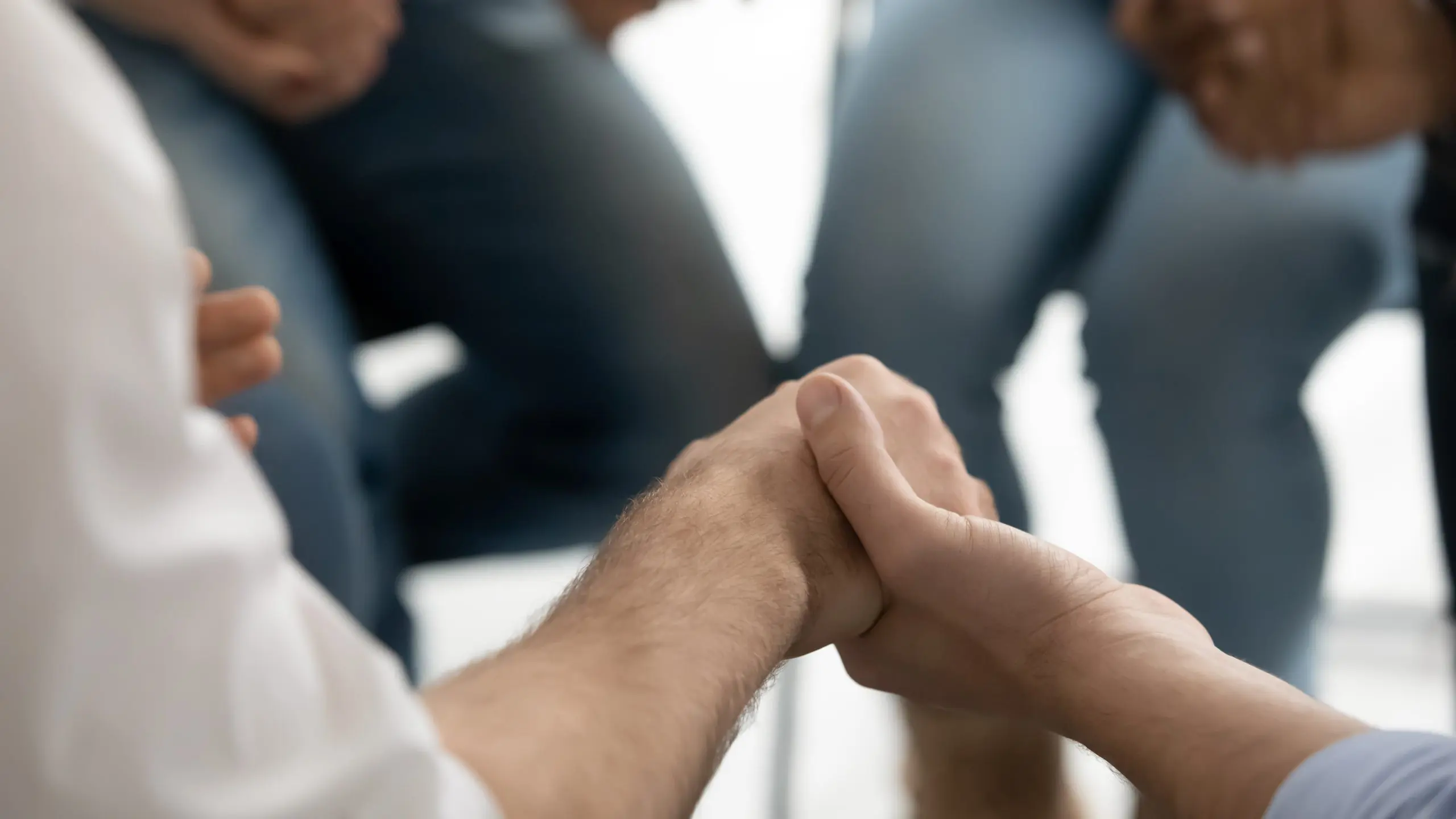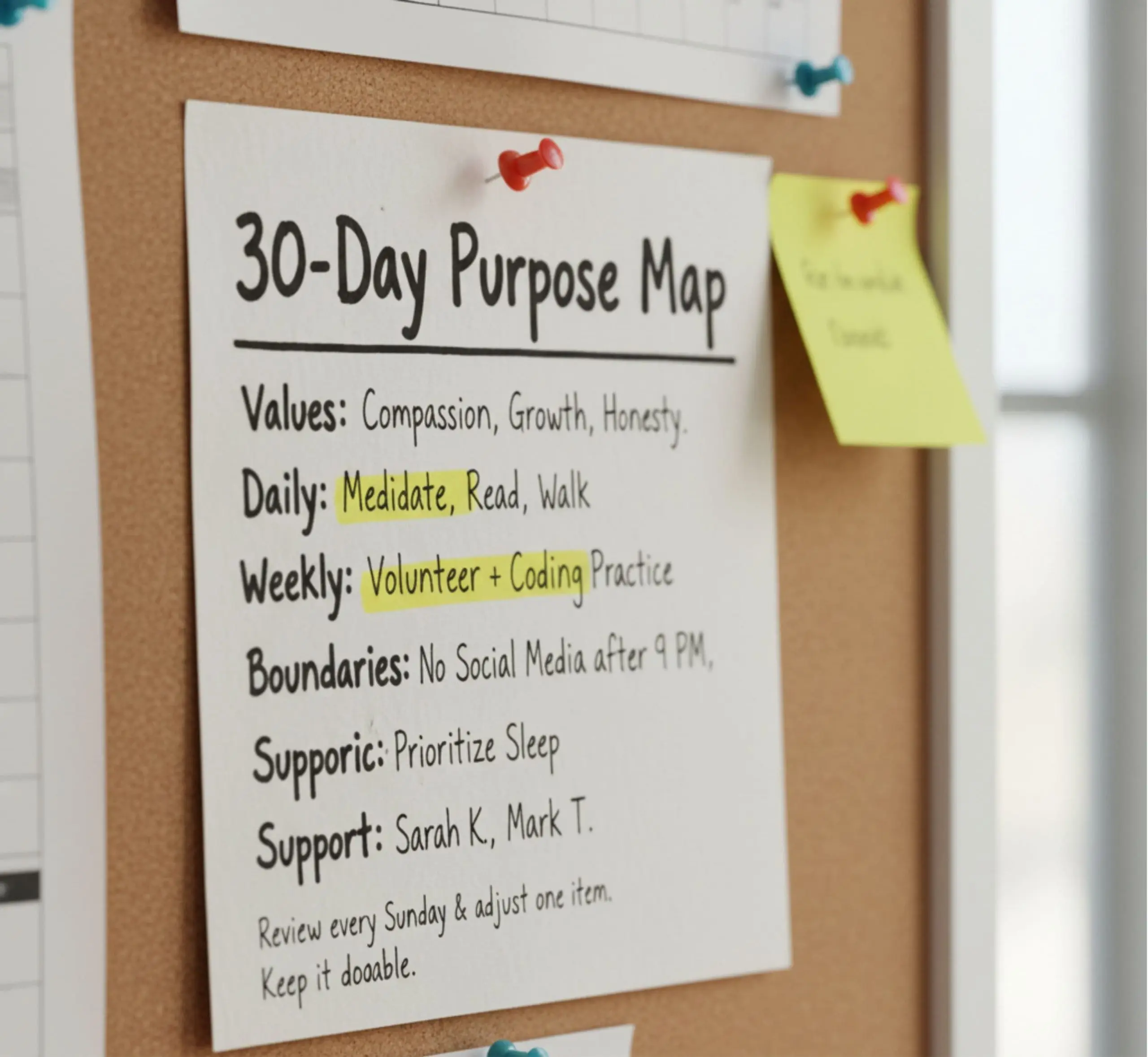

TL;DR: Find purpose after addiction by aligning daily actions with your values, stacking small wins, serving others, and building skills that open real options.
It’s normal to wonder how to find purpose after addiction. Purpose isn’t a single “aha”—it’s a set of choices you repeat until life points in a direction that feels true. Start small, align actions with values, and let momentum do the heavy lifting.
Grab a short list—family, health, learning, creativity, service, stability. Circle three. For each, write one behavior you can do this week (call a relative, cook a basic meal plan, read 10 minutes). Purpose grows when actions match values, not when you wait for motivation.
Tip: if choices conflict, ask, “Which option serves my values in 30 days?” That question cuts through urges and social pressure.
Design tiny, repeatable wins: a morning walk, a 5-minute tidy, one task finished before opening messages. Track three checkmarks a day (sleep, movement, one meaningful action). Small wins reduce craving windows and rebuild identity as a doer.
Expect plateaus; they signal it’s time to simplify, not quit. Shrink the target (2 minutes of action) and restart the streak.
Helping others adds meaning fast. Try a one-hour weekly role—greeting, packing, grounds help. Service offers structure, community, and perspective without perfection pressure. Book it like a class; consistency matters more than intensity.
Purpose deepens when competence grows. Choose one skill that touches your values: basic cooking, budgeting, a certificate course, or a creative craft. Schedule two short sessions weekly. Skills widen your future—jobs, hobbies, and relationships—and that makes sobriety more rewarding.
Evidence reviews (see NIDA on recovery) highlight routine, connection, and mastery as key drivers of long-term stability.

Write this on a card: “Values: [3 words]. Daily: [3 tiny behaviors]. Weekly: [service + skill sessions]. Boundaries: [two bright lines]. Support: [two names].” Put it where you’ll see it. Review every Sunday and adjust one item—keep it doable.
Share goals with two supportive people; use quick check-ins, not long speeches. Protect sleep, meals, and movement—these make values-based choices easier. If you need added structure, explore Uplift Recovery or start a private conversation via Contact. Your next step can be small—and still change your direction.


Please complete the form below for Insurance Verification. Our Admissions team will get back to you shortly.
Unfortunately, we are unable to accept Medicare or Medi-Cal at this time.
Confidential | Cost Free | No Obligations
Please complete the form below for Insurance Verification. Our Admissions team will get back to you shortly.
Unfortunately, we are unable to accept Medicare or Medi-Cal at this time.
Confidential | Cost Free | No Obligations